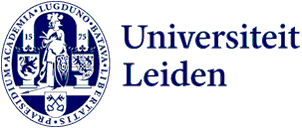
From discovery to business: 'In the lab, we often don't realise that we are working to help an immense number of patients'
'It gave our team a big boost to hear that our work was valuable,' says medical chemist Elmer Maurits about the moment they won the Venture Challenge. With their company Iprotics, they want to develop a drug that can better treat patients with autoimmune diseases and blood cancers. 25,000 euros of prize money and the interest of a lot of investors, will bring the drug a bit closer to patients.
'The current drug given to patients with autoimmune diseases and blood cancers has very serious side effects. Heart failure occurs among 10% of patients. And neuropathy, paralysis of the arms and legs, is also very common,' says Maurits. 'So imagine being told you have cancer, going to the hospital for treatment and a week later being in a wheelchair because of that treatment. How much better did that treatment make your life then?!’

Bringing a drug to the market
In the lab, Maurice discovered a way to make a similar drug that does not have the severe side effects. But how do you go from that discovery to a drug on the market? In order to get help with that, Maurits and the team of scientists Hermen Overkleeft and Bogdan Florea took part in the Venture Challenge.
During two bootcamps and ten weeks of mentoring, the team gets tools to start a bio-startup. 'You learn how to write a good proposal to convince investors and how to give an interesting pitch. We always work in an academic setting, so never look at it from a business perspective.'
Not letting investors fall asleep
To develop and test a drug, a lot of money is needed. In fact, clinical trials cost several million euros. 'So we need investors in order to run our company Iprotics. Those investors get numerous talks a year and should be able to see in one minute whether the company has potential. That's why we had to learn how to give an interesting pitch without putting the investors to sleep,' Maurits laughs.
And after weeks of training, fine-tuning the pitch and business proposal, it worked out well. 'After the 10 weeks of preparation, we had to give our pitch in front of a jury and an audience of investors. The four other teams had to present before us and they were completely burned down with difficult questions from the committee. I did break out in sweat at that moment. But in the end, the presentation went super well and the questions were mild. Afterwards, we had investors around us all evening.'

Winning was the cherry on top
It was only two months later that they were told who the winner of the challenge was. 'Those were two tense months. The competition was fierce, but we had a good feeling about it. When we finally heard that we had won, it really gave our team a huge boost. It feels great that the judges confirm that you do have a good idea.'
The awards ceremony took place at a trade fair for biotech companies. A lot of new investors also approached the team there. 'We heard from many investors that we are really onto something valuable if we manage to bring it to market. And that we can help an awful lot of patients with this. That's something you don't realise when you're standing in the lab synthesising molecules.'
Not soon with the patient
Still, it will take years before the drug reaches patients. 'We now have to do a proof of concept study first. We have synthesised and characterised our molecules in the lab, but now we have to show that they actually work. To do so, we will write a clinical essay and test on a mouse model. If that shows that the drug really works, we can move on to clinical trials. Then investors will really be on board.'
Looking from different perspectives
So still a long, exciting road ahead, but for Maurits, it is an unforgettable adventure anyhow. 'The whole challenge was a real learning curve. And whether Iprotics will be a success or not, I have gained an enormous amount from this experience. It gives a new dimension to how I look at science. Before, I only looked at it from the chemical side. During my PhD research, the biological perspective was added. And now also the business perspective. I take all that with me when I go back into the lab to build a molecule.'
The Venture Challenge
The Venture challenge is an NWO initiative that helps life sciences start-ups take their service or product to market. In a programme of about 10 weeks, start-ups receive support in setting up a company, learn about the market and get in touch with investors.
